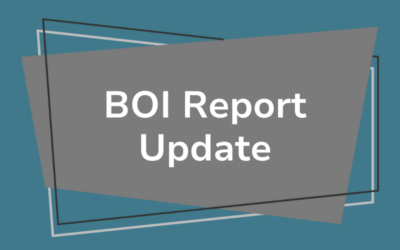As a freelance professional, establishing a solid working relationship with your clients often hinges on mutual understanding and clear expectations. New entrepreneurs learn that very quickly upon starting their businesses! That’s why having a proposal that covers all the bases can be one of your best business assets. Proposals that provide clarity and detail help to ensure you and your clients are on the same page. That’s important for both “one-off” transactional projects and ongoing assignments.
What should your proposals include? At a minimum, I recommend you make sure they have the following pieces of information:
- Introduction/Overview – Provide a summary of what your proposal includes and a synopsis of the project and your role in it.
- Scope Of Work – Give details about what you will be doing for your client. Be specific! Take care to spell out exactly what services you’ll provide. The last thing you need is for the client to assume you’ll be doing something that you assumed they’d be doing. Yeah, that can get ugly!
- Description Of Collaborative Process – This is critical to address because the method of collaboration (face-to-face meetings, phone calls, email, etc.) can significantly impact the amount of time you’ll spend exchanging information with your client.
- Deliverables Schedule – Provide a schedule to identify deadlines for different components of the project and for bringing the project to its conclusion. And don’t forget to mention that your timeline will be dependent upon the client’s responsiveness—or lack of—in providing you with the information and answers you need.
- Pricing/Rates – Make sure your client understands your rate structure and pricing so there are no surprises—or pushback—when you send your invoice.
- Billing Terms And Conditions – This, too, should be crystal clear to your clients. Will you request a down payment? Are your billing terms net 7, net 20, net 30 or some other arrangement? How do you accept payments?
- Thank You Statement – Never underestimate the power of politeness! Always take the opportunity to let your clients know you appreciate them.
- Signature Line – That’s right…ask them to sign off on your proposal to indicate they understand, agree with, and accept what you’ve presented.
As with any agreement, having your proposal in writing will help you in the long run if down the road you and your client aren’t seeing eye to eye. While email exchanges provide you some protection when working with a client, a signed document (either hard copy or via electronic signature) makes the arrangement more formal. You can find a ton of online proposal templates out there on the web and there are even cloud-based proposal creation platforms you can subscribe to.
Whether you’re a seasoned freelancer or just getting your business off the ground, make proposals a priority when doing business with your clients. Regardless of how you choose to produce your proposals, you’ll save yourself a lot of headaches down the road by ensuring you and your clients are on common ground.
Making headway as a freelancer and need to Incorporate or Form an LLC? CorpNet can help! Call us today for a free business consultation!





